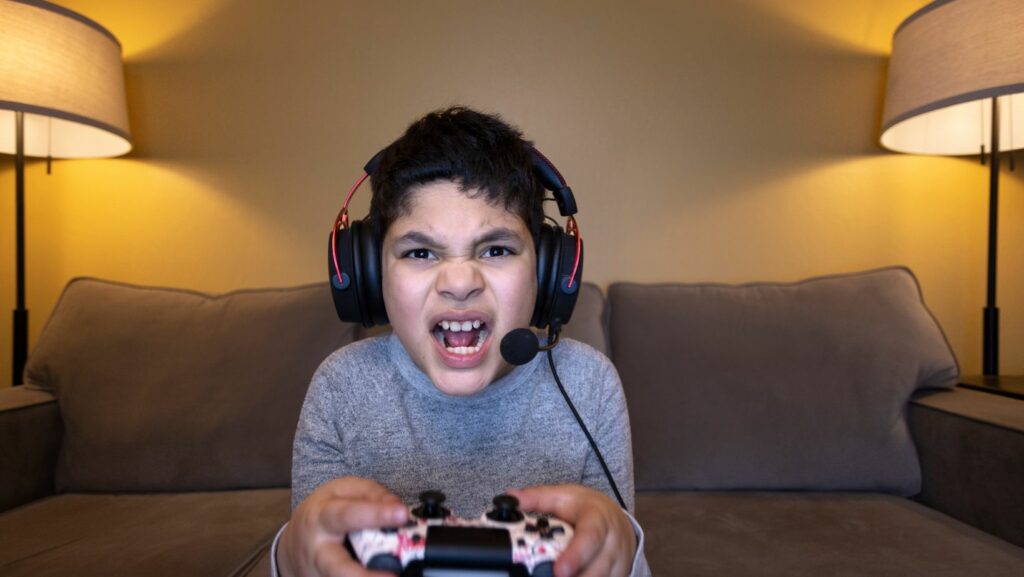Negative Effects of Video Games on Mental Health
Video games hold a prominent position today. They’ve become an integral part of mainstream culture, embedding themselves in various aspects of daily life. For instance, sports-themed games like “FIFA” or “Madden NFL” are synonymous with the sports they imitate, enhancing the fan experience manifold.

Educational institutions find merits in edutainment video games like “The Oregon Trail,” using it as a tool to enrich the learning experience.
Nevertheless, the immersive nature of video games can lead to problematic usage patterns. Video Gaming Disorder, recognized by the World Health Organization, is one such condition resulting from excessive gaming. Alongside, enrapturing games like “World of Warcraft” often keep players engrossed for hours, impacting their sleep rhythm and exacerbating mental health problems such as depression and anxiety. American Psychological Association’s research substantiates these detrimental effects of excessive gaming on mental health.
Negative Effects of Video Games on Mental Health
In view of the previous context, this section extends the discourse to detailed exploration of specific negative impacts of video games on mental health. It zeroes in on psychological disorders tied to excessive gaming, and the connection between video games and stress levels.
Excessive gaming, in no uncertain terms, fosters a number of psychological disorders as surmised from numerous studies. The first notable impact is Video Gaming Disorder, recognized by the World Health Organization as a mental health condition. Symptoms parallel those of substance abuse disorders, including the inability to control gaming frequency, prioritizing gaming over other interests, and continuing to play despite evident negative consequences. Just as an illustration, an individual might skip meals, compromise sleep, and neglect social obligations to partake in gaming.

Similarly, excessive gaming also fosters anxiety and depression. Evidence from a study conducted by the University of Bergen (Norway) revealed that compulsive gamers were more likely to exhibit symptoms of depression and anxiety as compared to their non-gaming counterparts. For instance, a young adult may develop feelings of restlessness, become easily fatigued, or experience a persistent irritable mood, as they cope with the effects of the gaming addiction.
Video games, as corroborated by research, play a significant role in altering stress levels. A study by the American Psychological Association linked excessive gaming to increased stress levels while simultaneously reducing the body’s physiological ability to respond to stress. To put into context, a gamer might develop escalated heart rate responses to real-world stressful situations.
However, it’s worth mentioning that this impact is not entirely straightforward. As per a study by the National Institute of Health, strategy-based games exhibited the potential to reduce stress levels. This underscores that not only the quantity, but also the quality and type of games, contribute to the overall impact on the mind, thereby making a case for a more nuanced understanding of the relationship between video games and stress levels.
Striking the Balance: Moderate Gaming for Mental Health
Paving the way to moderate gaming, it becomes essential to understand the line between good and bad gaming habits. This section delivers tips on establishing healthy video game habits and ways to transform gaming into a stress-reliever instead of a stress-inducer.
Healthy video game habits denote moderate use and responsible gaming. They’re characterized by controlled playtime, usually capped at around 1-2 hours a day, and the ability to disengage from the virtual world at will. Players identify gaming as a recreational activity, not an escape mechanism, adding value to their entertainment time without jeopardizing other life responsibilities. For example, practicing healthy gaming habits, those in the 10-19 age group can balance their screen time with physical activity, academics, and social interactions thereby promoting comprehensive growth.

Positive transformation of gaming habits calls for games that promote mental well-being, self-care, and stress management. Mindfulness-based games, for instance, create an immersive experience that encourages relaxation and stress relief, making gaming therapeutic rather than detrimental. It’s important that the shift focuses on enjoying the interactive narrative, environment, or the challenges within the game rather than obsessing over completion or achieving high scores. For example, games such as “The Sims,” “Animal Crossing,” or “Stardew Valley” provide a laid-back play experience that can help reduce stress and foster creative thinking. Limiting exposure to violent and high-stress games can also lower stress levels and encourage healthier gaming practices.



